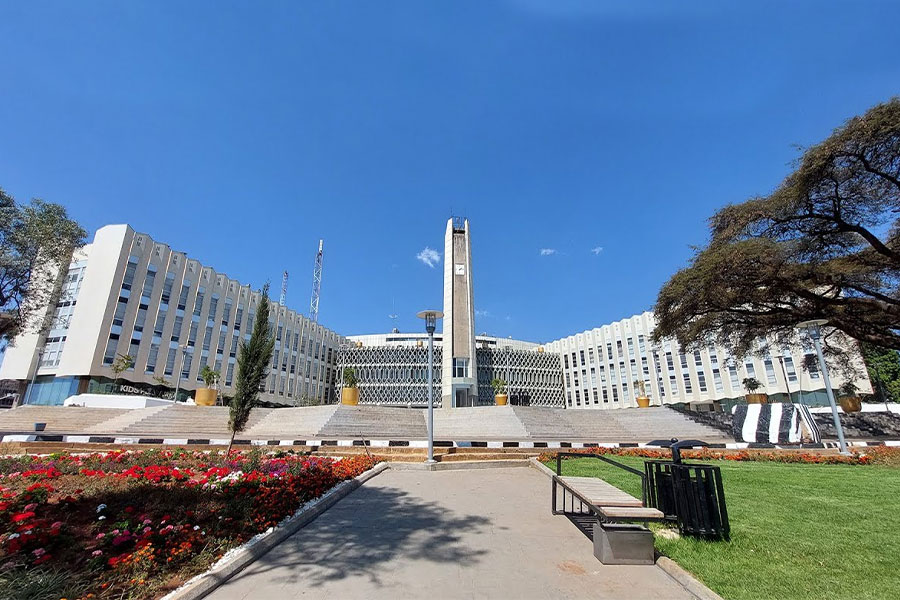
Radar | May 21,2022
The federal government has ventured into a deal with a company, Eteop Black General Trading Plc, in an ambitious effort to address severe shortages and stabilise the edible oil market.
The deal, which the authorities hope could potentially be a game-changer, will allow the state-owned Ethiopian Industrial Inputs Development Enterprise (EIIDE) to acquire 29 million litres of sunflower oil, estimated to cost the government close to 43 million dollars at the current exchange rate. Import was scheduled to begin in March, with the amenity of a one-year window to complete payments after the commodity’s delivery.
The deferred letter of credit arrangement – a notable feature of this deal – promises a financial breather to the federal government as it grapples with a volatile commodities market and an economy suffering from structural imbalances. Incorporated in 2015, the Enterprise has operated, leveraging its four billion Birr capital to offer consumer goods at relatively lower prices through its 83 outlets scattered across the country.
It also maintains an operating fund, fed by a modest five percent profit from each sale, to cushion its operations.
The Enterpise’s executives revealed that similar arrangements are underway to provide a much-needed respite from the food oil shortage and stabilise its price in the market.
Mesfin Melese, the Enterprise’s procurement coordinator, disclosed that Eteop Black was selected after evaluating the company’s supply record and comparatively low bid offer.
The deal highlights an unusual commitment from Abiy Teka, Eteop Black’s CEO, to supply five litres of sunflower oil for a meagre 391 Br, representing a drastic cut from the retail price. The domestic retail price for a five-litre sunflower oil currently hovers around 900 Br, a steep increase of 40 Br from the preceding month. The spike is attributed mainly to the erratic nature of the international crude oil market, a primary component influencing local retail prices.
Despite efforts, Eteop Black’s management team remained unavailable for comments.
The UAE-registered company under Abiy, Tekle Desalegn, and Taufik El Tal; it has been actively involved in the import and export business since 2012.
The deal comes on the heels of a disappointing outcome last month when executives of the Enterprise planned to procure 20 million litres of sunflower oil, inviting domestic manufacturers to place their bids. A foreign currency crunch led to an unexpected response – no interested bidders. Domestic demand for edible oil is projected to be close to one billion litres a year, but the persisting foreign currency shortage has left manufacturers operating below capacity or halting operations altogether.
Leaders of the Ethiopian Edible Oil Manufacturer Industries Association, comprising 600 members, expressed their discontent over the stringent preconditions to participate in the bidding process. Mohammed Yusuf, the association’s board chairman, blamed discouraging aspects of the bid - the requirement to supply in bulk and the large guarantee the executives placed.
Mohammed noted relatively stable domestic prices over the past two months despite recent international price fluctuations.
The Finance Minister, Ahmed Shide, disclosed that despite the substantial revenue losses, the federal government prioritised essential commodities like edible oil and pharmaceutical supplies for foreign currency allocation. The federal government forfeited 11 billion Br in revenues last year, after granting a waiver on essential commodities such as edible oil.
The Enterprise has continued placing orders for palm oil with Golden Africa, a Djibouti-based supplier.
Mesfin confirmed to Fortune that the Ministry of Finance has guaranteed to handle the exchange rate variation in the 43-million-dollar procurement deal for 29 million litres of sunflower oil.
Economists advise that the authorities should empower domestic manufacturers to achieve self-sufficiency.
Shemelis Araya, an agricultural economist, argued that while sourcing from the global market may be an unavoidable interim solution, it only offers temporary relief.
“It’s like taking a painkiller instead of treating the real cause,” he cautioned, advocating for low-interest loans and tax holidays to bolster the nascent domestic industry.
PUBLISHED ON
Jul 08,2023 [ VOL
24 , NO
1210]

Radar | Jun 21,2025

Covid-19 | Apr 01,2020

Fortune News | May 07,2022

Fortune News | Jun 18,2022

Radar | Oct 05,2019

Dec 22 , 2024 . By TIZITA SHEWAFERAW
Charged with transforming colossal state-owned enterprises into modern and competitiv...

Aug 18 , 2024 . By AKSAH ITALO
Although predictable Yonas Zerihun's job in the ride-hailing service is not immune to...

Jul 28 , 2024 . By TIZITA SHEWAFERAW
Unhabitual, perhaps too many, Samuel Gebreyohannes, 38, used to occasionally enjoy a couple of beers at breakfast. However, he recently swit...

Jul 13 , 2024 . By AKSAH ITALO
Investors who rely on tractors, trucks, and field vehicles for commuting, transporting commodities, and f...

Nov 1 , 2025
The National Bank of Ethiopia (NBE) issued a statement two weeks ago that appeared to...

Oct 25 , 2025
The regulatory machinery is on overdrive. In only two years, no fewer than 35 new pro...

Oct 18 , 2025
The political establishment, notably the ruling party and its top brass, has become p...

Oct 11 , 2025
Ladislas Farago, a roving Associated Press (AP) correspondent, arrived in Ethiopia in...